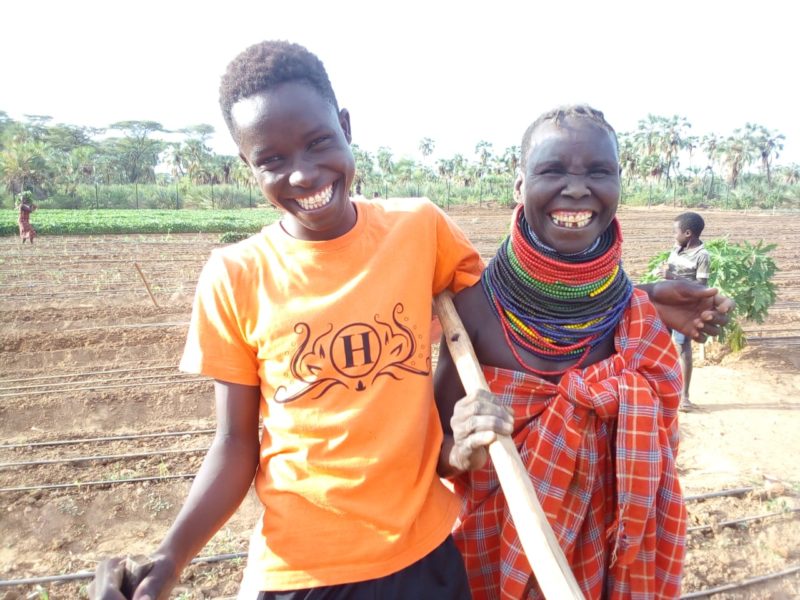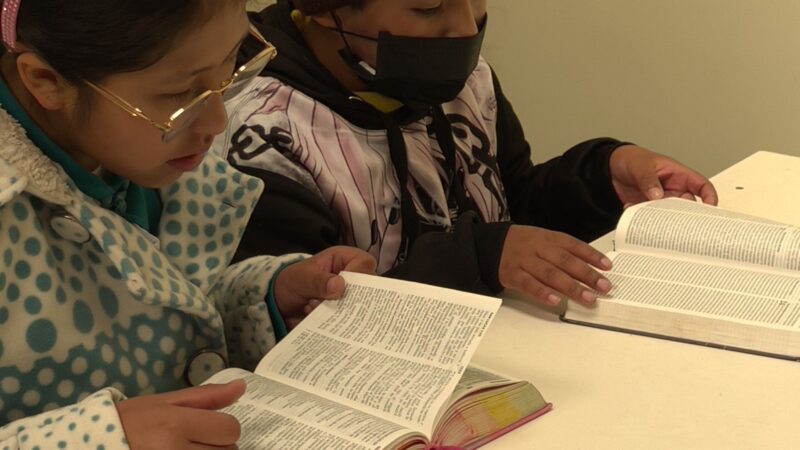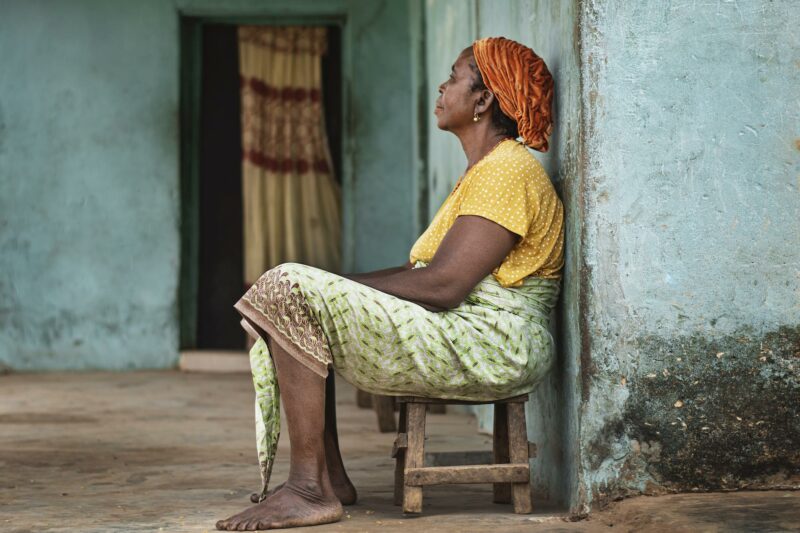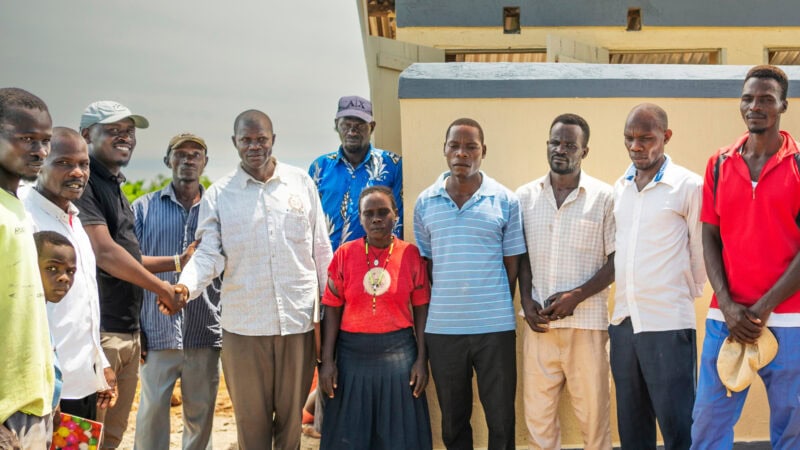Meet 18–year-old Daniel Emoni, a young man who smiles brightly as he shares his story. He’s the fourth born in a family with five children. Daniel and his younger brother live with their mother, Maria Apem, in the Natoot village in northern Kenya. Maria is one of the beneficiary farmers at the Natoot Farm in Turkana County, but this wasn’t always the case. For most of her adult life, she struggled to provide for her family with the meager earnings she’d make selling charcoal.
“I didn’t think my mother would be able to raise enough money to pay my school fees for class eight. Every time I thought about not completing my primary education, my heart filled with fear. I didn’t want to live a miserable life, a life where other people looked down on me as someone who didn’t complete his primary schooling. I want to give back to society and assist other vulnerable people in my community.”
“Life was not good.”
“Our mother struggled to provide for us. Our father left us when I was ten years old and went to live with his second wife. When we were not in school, we would help our mother burn charcoal, which she tried to sell to earn money to purchase food and clothing. Life was not good. We were never certain of an evening meal. Despite all the hardships, mom encouraged me to continue with school. She always assured me of a brighter future if I worked hard in class.”
“I knew it was time to drop out.”
“Though life was tough, and she had no stable income, my mother sacrificed every single coin she got to support me in school. Then the school administration made it compulsory for all class eight pupils to join the boarding section of our school. There was no way my mother was going to make the extra fees required to keep me in school. I knew that it was time for me to drop out and start living like my peers in the village.”
And then, an unexpected turn of events.
Daniel knew that his dreams of becoming a doctor would never come true. But his mother encouraged him and took him to school with a few personal items that she was able to acquire. Daniel’s mother explained her situation to the administration and promised to provide all the remaining requirements. To his disbelief, Daniel was enrolled for the class eight national examination.
While Daniel worked hard at school, one question played on repeat in his mind: “How was his mother paying his school fees?”
“My mother left me in school, but I was not sure how she was going to raise the money to pay my school fees while at the same time feeding those at home. But to my surprise, she somehow managed to chip away at what we owed. Every three to four weeks, my teacher would inform me that my mother had visited the school and paid off some of the fees. Sometimes, she’d even give my teacher fifty shillings for me to have as pocket money! Her determination to see me through my primary education and succeed in life gave me hope and strength to work hard in school.”
A surprise at home
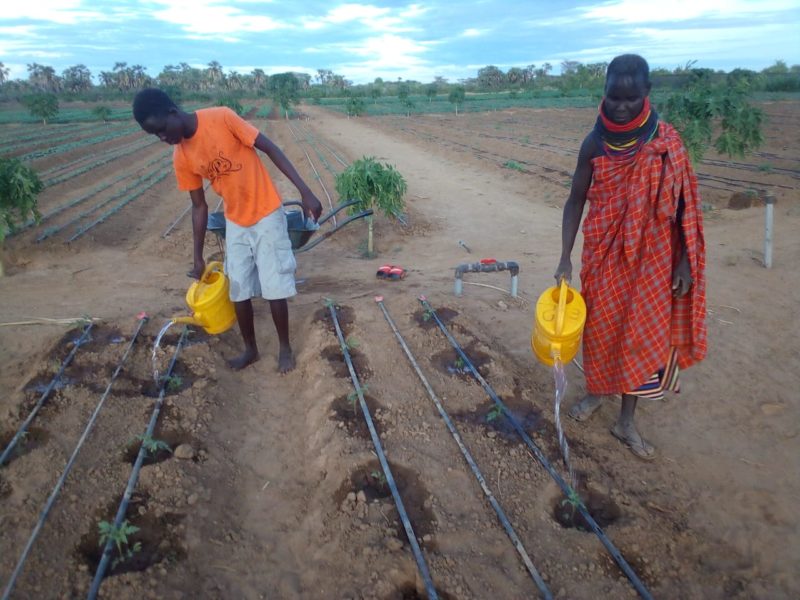
“When the school closed for a break and I returned home after the final examination, my mother showed me how she was earning money to pay my school fees by working at the farm growing and selling tomatoes. At first, I could not understand because farming was new to me. But as I continued visiting the farm with her and helping here and there, I developed an interest and learned the agricultural skills behind her success.”
Like other children from Natoot village, Daniel has helped his mom at the farm by planting, weeding, and watering the crops. Daniel scored 275 of 500 points in five subjects in the final national examination of his primary education. He now waits for his high school calling letter that will allow him to join a secondary school in July. Until then, Daniel helps his mother at the farm and hopes that by the time he begins high school, his mother will have saved some money by selling the tomatoes they are watering now.
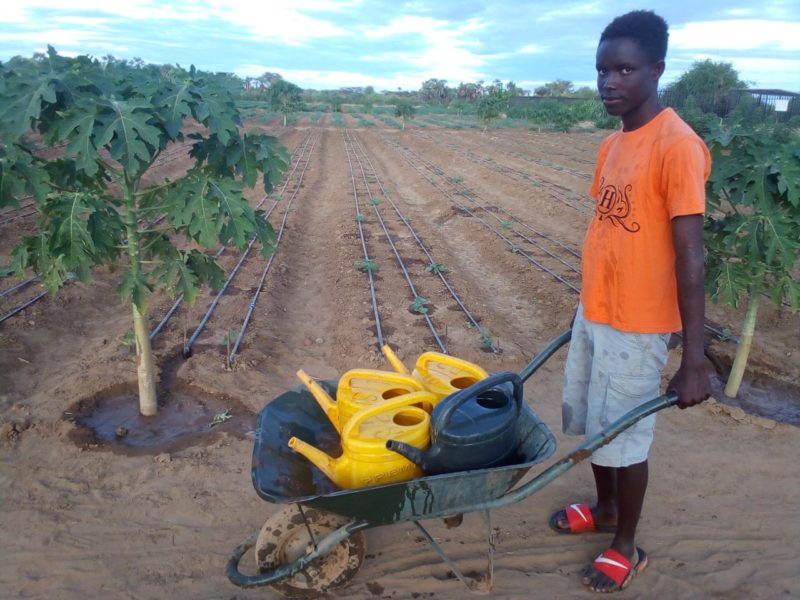
“If not for this farm…”
“If not for this farm, I could not have sat for my final primary education examination. I know that my mother has no other means to send me to high school than the money raised from the farm sales. That is why I am determined to work hard and help her reap a good harvest from the tomato seedlings she is planting now.”
Since the school’s closure for the second term holiday, Daniel has inspired other children in the village whose parents have plots in the Natoot Farm. Many students are now supporting their aging parents by taking care of their crops.
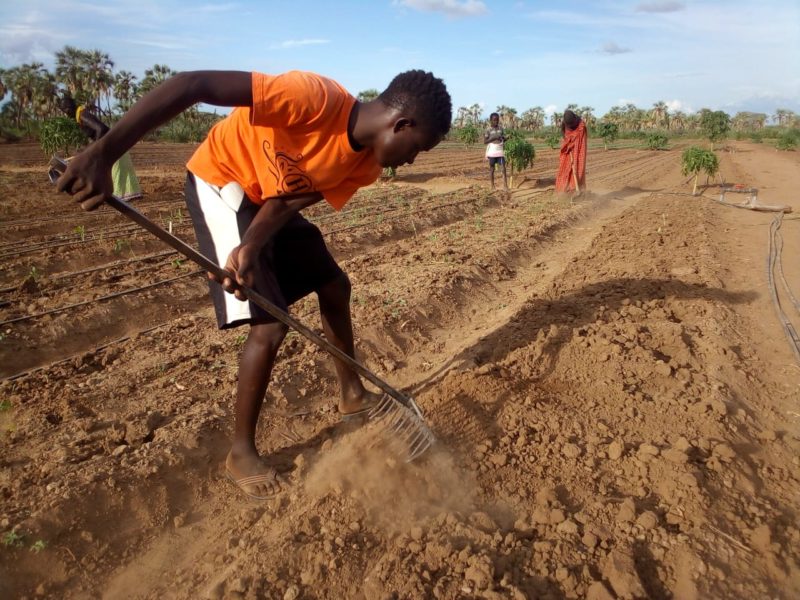
Sustainability excites us!
Sustainability is a word we use a lot at Bright Hope. We feel passionate about it because sustainability brings long-term change. By partnering with local churches to provide training, education, and microenterprise opportunities to the poor, we are steering them off the path of poverty and onto a new trail leading to a bright and promising future!
In Daniel’s story, his education would have come to an unfortunate end at after grade seven because his mother didn’t have enough income to cover the family’s most basic needs. But when Maria received the opportunity at the Natoot Farm, everything changed for her family.
Bright Hope could have paid for Daniel’s school fees or given Maria food for her family. With that money, she could pay for Daniel’s schooling with her meager earnings. But this only puts a short-term patch on a long-term problem. By training Maria how to farm and lending her the resources to do so, we gave her a skill and a livelihood that has changed her family’s life forever. That’s the power behind sustainability programs and why we get so excited about equipping and empowering the poor!
Learn More About Bright Hope’s Sustainability Programs
When Hope for Today Makes Tomorrow Possible
Hope for Tomorrow: Sometimes Poverty Alleviation is Simple
Hope for Eternity: Jesus Cares for the Poor
Bright Hope, a Holistic Ministry Meeting the Needs of the Poor

